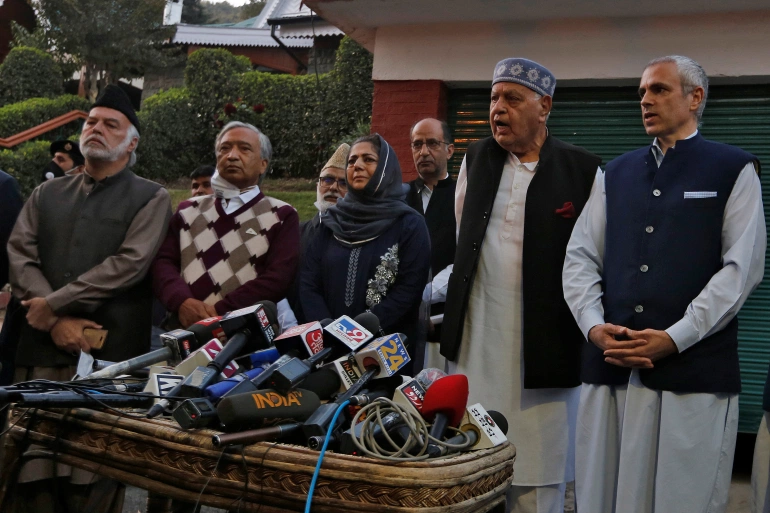The Central government’s decision to invite 14 key leaders of Jammu and Kashmir to a meeting with the Prime Minister June 24, over 22 months after the abrogation of Article 370 and bifurcation of the former state is a reflection of the government’s desperation to get back its international standing. This comes after international and domestic criticism over a series of actions intended to suppress people’s democratic rights in the valley and other parts of Kashmir. The Centre seems to have embarked on a public relations exercise to convince the world that it wants the political process in J&K to begin and an elected government installed following the ongoing delimitation process. The Delimitation Commission, which met February 18, has been studying various aspects related to redrawing of Assembly constituencies. While Prime Minister Narendra Modi has iterated that statehood is the inevitable destination of a political process, a possible roadmap towards that is reportedly on the agenda of the June 24 meeting in Delhi. However, the Centre has not made public any agenda for the meeting.
News leaking out suggests that all the key players in J&K, including the mainstream regional parties – National Conference (NC) and People’s Democratic Party (PDP) – have started hectic discussions among themselves to devise their strategy for the meeting. The consensus that seems to have arisen is for all parties to demand restoration of full statehood before any discussions. The People’s Alliance for Gupkar Declaration (PAGD), an amalgam of six political parties including the NC, PDP, CPM, Awami National Conference, CPI and JK People’s Movement, will obviously face tremendous opposition at the ground level if they are perceived as playing into the hands of the government of India. For example, the people of Kashmir have been under a terrible siege by the Indian army since 5 August 2019. The lockdown that came due to Covid-19 that Indians elsewhere complain about is nothing compared to the harshness of a military clampdown that people of Kashmir have been going through for a long time. All local media sources have been blocked. This has chocked off free flow of news within Kashmir. At the same time, news from Kashmir cannot be accessed from anywhere outside. Educational institutions have been shut for over two years and students are helpless since there is no scope of online classes due to blocking of internet services by the government. In today’s world, the right to internet access is considered a basic human right. The Indian Supreme Court had, some time back, pulled up the government for denying internet facilities in Kashmir. Tourism, the most important economic activity of that area, has completely dried up during the past many years. The Centre’s efforts at helping apple farmers sell their produce also failed miserably during the past two years. This has resulted in complete breakdown of the economic structure and impoverishment of the people. Added to this is the Covid pandemic, where there has reportedly been mismanagement in the health and vaccination fronts. There is no clarity on figures of infected people or deaths as verifiable news sources have been made inoperative.
On the political front, the Centre may stand to gain by this invitation to parley. Government of India will be in a position to claim that they took the initiative for restoration of democratic political process. The catch, however, will be for the regional parties and their leaders. If they decline to participate under whatever circumstances, the Centre may have an opportunity to blame them. On the other hand, if they come forward and participate in the discussions, there is every possibility the political outfits will be viewed as betrayers by the people of Kashmir. With security withdrawn for most of the regional leaders, their very existence could be at stake if they decide to participate. In an area that has been completely deprived of basic amenities required for survival, it would be understandable if the locals have turned against the Indian army and the nation that stands behind it.
There is no doubt that Article 370 needed to be annulled. Unfortunately, that one good act has been confused with the bad handling spread over a long time. A military solution could never have been the way for a long term of the Kashmir problem since that is what has been tried by successive previous Congress governments. While the Congress confused and deepened the crisis, the present dispensation has only helped in lengthening the shadows of alienation for the ordinary Kashmiri. Many observers used to constantly complain about the high level of expenditure that was being incurred for keeping the security forces stationed at Kashmir for decades. Now, with a huge add up of security personnel in Kashmir, the cost to the exchequer would have also grown multiple fold. Eventually, it is the Indian taxpayer paying for decisions which the future alone can decide whether they were appropriate or not.
